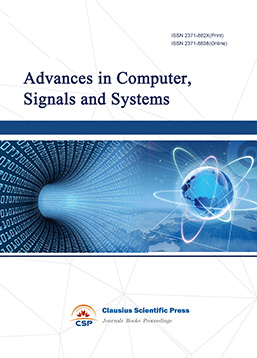Research on the Reform of Programming Courses Driven by Generative Artificial Intelligence
DOI: 10.23977/jaip.2025.080119 | Downloads: 28 | Views: 1035
Author(s)
He Wang 1
Affiliation(s)
1 School of Information & Intelligence Engineering, University of Sanya, Sanya, Hainan, 572022, China
Corresponding Author
He WangABSTRACT
Exploring the multi-dimensional impact of generative artificial intelligence (GAI) on programming courses in higher education, analyzing the opportunities and challenges it brings in areas such as teaching, academic integrity, and future talent demands. Through an in-depth analysis of the technical characteristics of generative AI, its code generation capabilities, and its current applications in the educational field, it is found that generative AI offers significant advantages in enhancing programming learning efficiency and personalized teaching. However, it also poses new challenges to academic integrity and student motivation. In light of the trends in AI development, the study highlights the necessity of curriculum reform and proposes measures such as constructing a AI-assisted teaching model, optimizing course design, and innovating assessment systems to promote the reform of programming education, thereby meeting the new demands of the AI era.
KEYWORDS
Generative Artificial Intelligence (GAI); DeepSeek; Programming Education; Curriculum ReformCITE THIS PAPER
He Wang, Research on the Reform of Programming Courses Driven by Generative Artificial Intelligence. Journal of Artificial Intelligence Practice (2025) Vol. 8: 150-155. DOI: http://dx.doi.org/10.23977/jaip.2025.080119.
REFERENCES
[1] DeepSeek-AI et al. DeepSeek-R1: Incentivizing Reasoning Capability in LLMs via Reinforcement Learning[J/OL]. ArXiv abs/2501.12948, 2025. [Accessed: February 25, 2025]. Available: https://arxiv.org/abs/2501.12948.
[2] DeepSeek-AI et al. DeepSeek-V3 Technical Report[J/OL]. ArXiv abs/2412.19437, 2024. [Accessed: February 25, 2025]. Available: https://arxiv.org/abs/2412.19437.
[3] Achiam, OpenAI Josh et al. GPT-4 Technical Report.[J/OL]. ArXiv abs/2303.08774, 2023. [Accessed: March 11, 2025]. Available: https://arxiv.org/abs/2303.08774.
[4] Duan Weiwen, Yu Meng. Lifelong Creativity Cultivation in the Era of Generative Artificial Intelligence[J]. Studies on Science Popularization, 2024, (02): 13-22+38+101-102.
[5] Zhang Xi, Yang Xiaoshan, Xu Changsheng. Current State and Future Development Directions of ChatGPT and Generative Artificial Intelligence[J]. Bulletin of National Natural Science Foundation of China, 2023, (05): 743-750.
[6] Xiao Yanghua. Generative Language Model and Artificial General Intelligence: Connotation, Approach and Implications[J]. Renming Luntan•Xueshu Qianyan, 2023, (14): 49-57.
[7] Tu Liangchuan. The Philosophical Narrative of "Generative Artificial Intelligence" Approaching General Intelligenc[J]. Journal of Northeast Normal University, 2023, (04): 40-47+93.
[8] Liu Bangqi, Nie Xiaolin, Wang Shijin, et al. Generative Artificial Intelligence and the Reshaping of Future Education:Technical Framework,Capability Characteristics and Application Trends[J]. E-education Research, 2024, (01): 13-20.
[9] Faisal Kalota. A Primer on Generative Artificial Intelligence[J/OL]. Education Sciences, 2024, 14(2): 172. [Accessed: February 26, 2025]. Available: https://doi.org/10.3390/educsci14020172.
[10] Bo Junge, Qiao Yanan, Qi Qi, et al. Exploring Application Potential and Challenges of AIGC Technology in University Programming Courses[J]. Computer Technology and Development, 2024, (06): 214-220.
[11] Sun Dan, Zhu Chengcong, Xu Zuodong, et al. A Study on Analysis of College Students' Programming Learning Behavior Based on Generative Artificial Intelligence[J]. E-Education Research, 2024, (03): 113-120.
[12] Wang Yuxuan, Xu Wenhao, Yu Haomiao, et al. Challenges and Opportunities Brought by Generative AI to C Language Programming Teaching[J]. Computer Education, 2024, (08): 133-141+145.
[13] Sébastien Bubeck, Varun Chandrasekaran, Ronen Eldan, et al. Sparks of Artificial General Intelligence: Early Experiments with GPT-4[J/OL]. ArXiv abs/2303.12712, 2023. [Accessed: February 26, 2025]. Available: https://arxiv.org/abs/2303.12712.
[14] Tom Farrelly, Nick Baker. Generative Artificial Intelligence: Implications and Considerations for Higher Education Practice[J/OL]. Education Sciences, 2023, 13(11): 1109. [Accessed: February 26, 2025]. Available: https://doi.org/10.3390/educsci13111109.
[15] Yang Zongkai, Wang Jun, Wu Di, et al. Exploring the Impact of ChatGPT/AIGC on Education and Strategies for Response[J]. Journal of East China Normal University (Educational Sciences), 2023, (07): 26-35.
[16] Zhang Hongzhuo, Zhou Xiaobao, Xu Yuhuan, et al. Generative Artificial Intelligence Empowering Innovation in Computer Programming Course Teaching[J]. Computer Education, 2024, (07): 44-48.
| Downloads: | 17432 |
|---|---|
| Visits: | 641795 |
Sponsors, Associates, and Links
-
Power Systems Computation

-
Internet of Things (IoT) and Engineering Applications

-
Computing, Performance and Communication Systems

-
Advances in Computer, Signals and Systems

-
Journal of Network Computing and Applications

-
Journal of Web Systems and Applications

-
Journal of Electrotechnology, Electrical Engineering and Management

-
Journal of Wireless Sensors and Sensor Networks

-
Journal of Image Processing Theory and Applications

-
Mobile Computing and Networking

-
Vehicle Power and Propulsion

-
Frontiers in Computer Vision and Pattern Recognition

-
Knowledge Discovery and Data Mining Letters

-
Big Data Analysis and Cloud Computing

-
Electrical Insulation and Dielectrics

-
Crypto and Information Security

-
Journal of Neural Information Processing

-
Collaborative and Social Computing

-
International Journal of Network and Communication Technology

-
File and Storage Technologies

-
Frontiers in Genetic and Evolutionary Computation

-
Optical Network Design and Modeling

-
Journal of Virtual Reality and Artificial Intelligence

-
Natural Language Processing and Speech Recognition

-
Journal of High-Voltage

-
Programming Languages and Operating Systems

-
Visual Communications and Image Processing

-
Journal of Systems Analysis and Integration

-
Knowledge Representation and Automated Reasoning

-
Review of Information Display Techniques

-
Data and Knowledge Engineering

-
Journal of Database Systems

-
Journal of Cluster and Grid Computing

-
Cloud and Service-Oriented Computing

-
Journal of Networking, Architecture and Storage

-
Journal of Software Engineering and Metrics

-
Visualization Techniques

-
Journal of Parallel and Distributed Processing

-
Journal of Modeling, Analysis and Simulation

-
Journal of Privacy, Trust and Security

-
Journal of Cognitive Informatics and Cognitive Computing

-
Lecture Notes on Wireless Networks and Communications

-
International Journal of Computer and Communications Security

-
Journal of Multimedia Techniques

-
Automation and Machine Learning

-
Computational Linguistics Letters

-
Journal of Computer Architecture and Design

-
Journal of Ubiquitous and Future Networks


 Download as PDF
Download as PDF